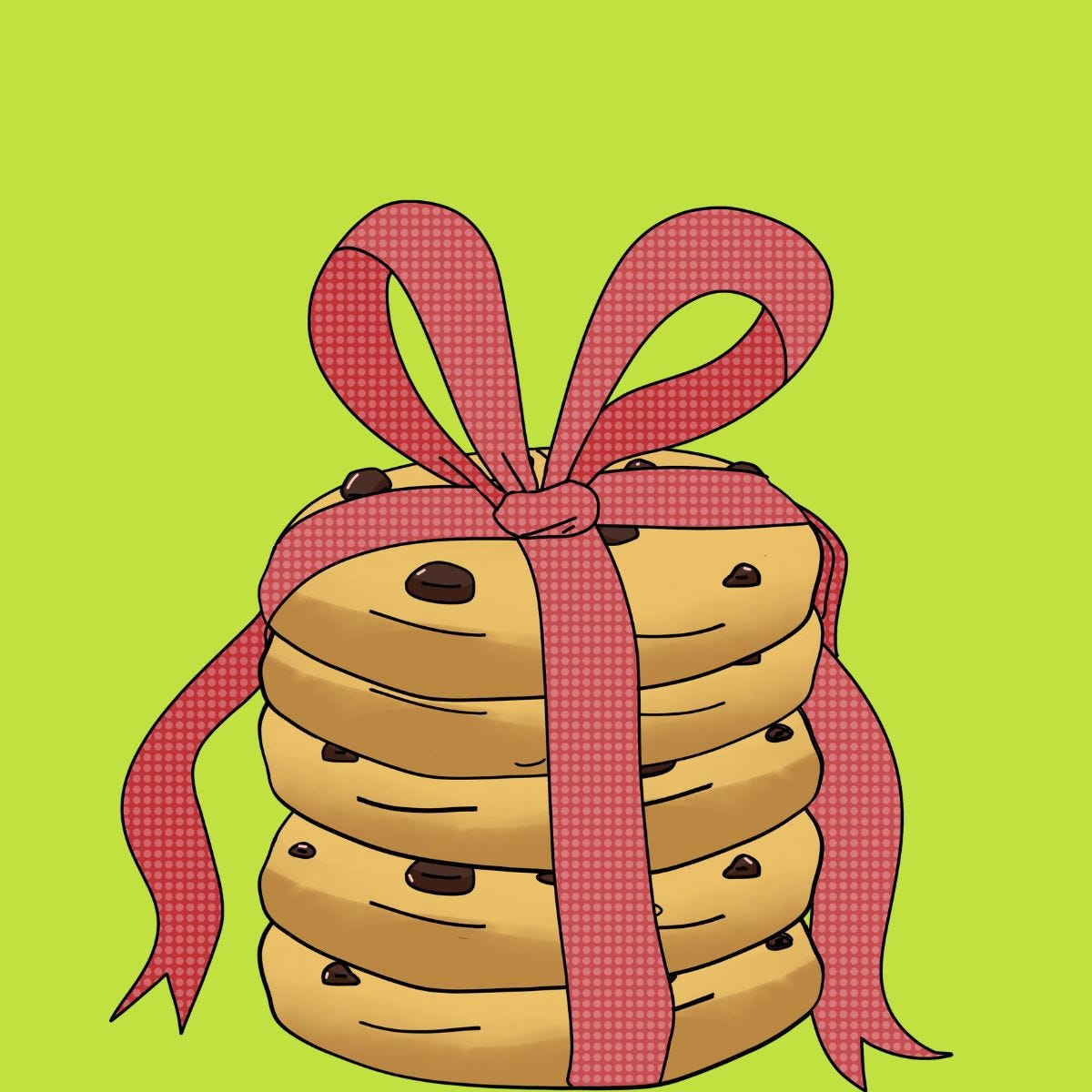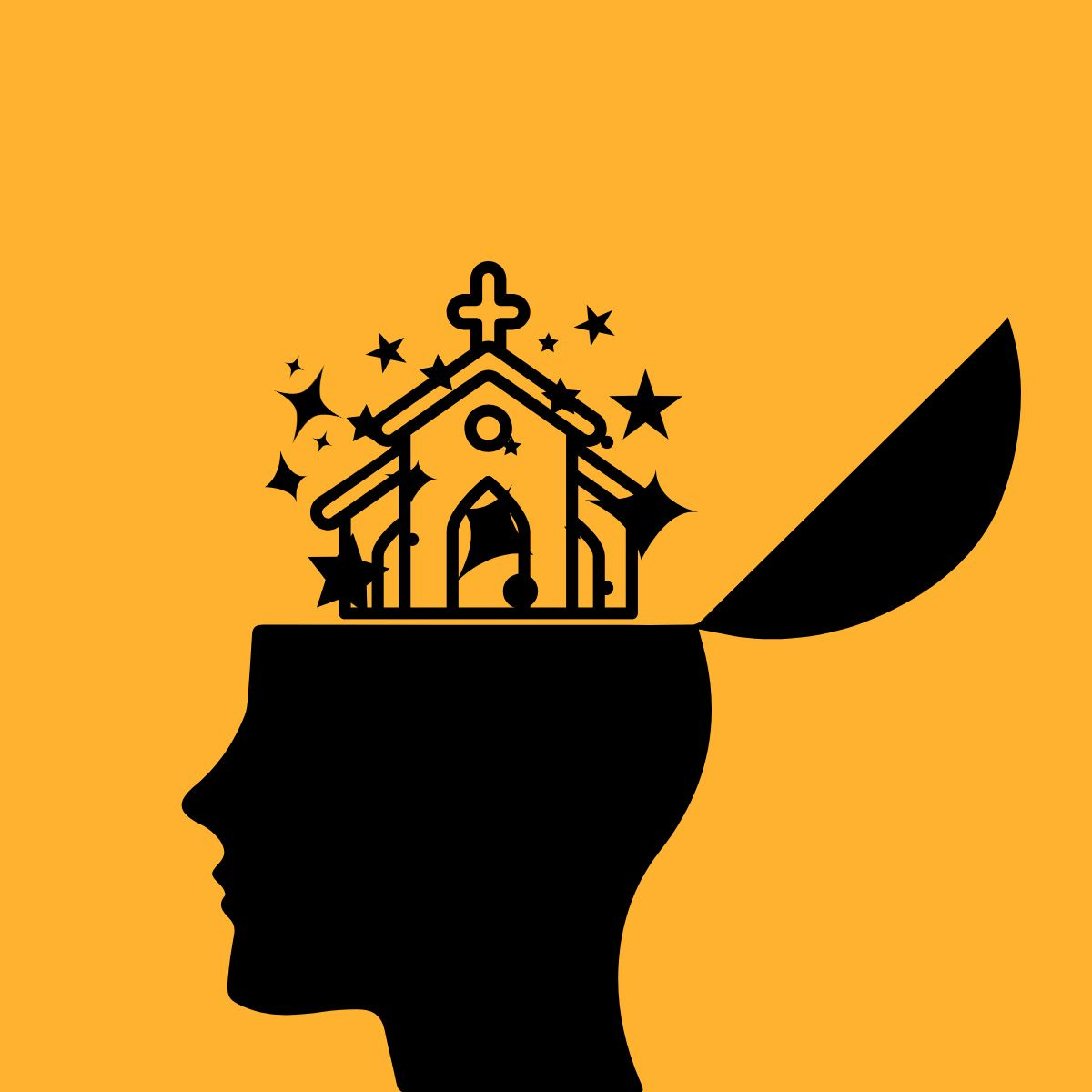Jen Says Boo
Once upon a time, many years ago I sat in a church stake auxiliary meeting. A stake is a collection of wards, which are congregations organized geographically. To remind, the word auxiliary is defined as “providing supplementary or additional help and support.” So they’re not the main, but ancillary.
The five main auxiliaries in the LDS church are Primary, Relief Society, Young Men, Young Women, and Sunday School. When LDS people say "auxiliaries," they are mostly talking about the women and the things assigned to the women.
As stated in the Doctrinal Foundation of the Auxiliaries, auxiliaries exist “to help plant and make grow … a testimony of [Jesus] Christ and of the Gospel.”
At this stake auxiliary meeting, thoughtful messages were delivered by women in leadership positions. I was serving with the Young Women at the time and my main priority was connecting with the youths and showing love and friendship. We’d also talk about gospel-related things which was also nice. But I found connecting with them was my first priority. It is my continuing mission to establish relationships and to try to fight off the urge to find ways to teach people and instead focus on finding ways to learn from them.
This is what has happened in hindsight reflection, at least, after all my blundering, doing what I thought I was “supposed” to do in my position or role, a continuing tendency and ongoing process.
At the end of this meeting, one of the counselors in the stake presidency stood up to cap off the night. For me, it had already been capped and this speech from him felt very ancillary. It was clear he didn’t have anything prepared to share and thus began riffing. Anyone who’s sat through an entire meeting of any kind knows that if your words, as the last to speak, aren’t earth-shattering, you might do well to just remain seated.
But he remained standing and made several disjointed comments, eventually arriving at men and women and their prospective roles. My skin prickled. He got specific about innate female qualities. Then my skin started to crawl.
He then sought to make a clear distinction, with reverent fervor, saying “We are the providers. You are the nurturers.”
To which I booed, loudly.
It’s wasn’t the first time I’ve booed and certainly wasn’t the last. The first time was in my ward in Brooklyn when a lovely sister was teaching Relief Society and declared motherhood to be the equivalent to the priesthood. It’s a nice thought I know a lot of people like to perpetuate and to me is absolutely false and unhelpful.
Fortunately I had friends in both places and fortunately received some laughter and support, for believe you me, it is no easy thing to boo at church. At the meeting, the stake counselor was so confused at being interrupted, much less by a boo, it took him a minute to realize something had even been said. And he inquired about it. “What did you say?” I replied, “I said boo.” And then tried to explain how I really loathe being boxed in by these roles and definitions. I imagined all the women in the room working to provide for their families and how swiftly invalidating that comment would feel. He was not interested to know more and continued his speech-thing and nothing else happened.
Why do I take issue? What’s the big deal? Well, I guess I don’t like the idea of automatically falling into a category of someone else’s assignment. I really don’t like being boxed in and I feel boxed in a lot. We live by assumption and preconception and generalizations which is dangerous.
There are a million ways to create containers for other people and when I feel myself forced or edged into one, I find it quite stifling. Worse, I may feel that there is something wrong with me that I do not fit, when the actual problem is not me, but that the container exists at all.
How I Feel About It
I mostly think Mother’s Day is kind of silly and best celebrated in a lighthearted way. Take it any further and it can cause a lot of pain. When given a stage of utmost importance at church, it can be a recipe for disaster.
I see no utility in this whatsoever. It doesn’t make sense to me. But alas, ‘tis a tradition to do so, and beneficial or not, people love their traditions, so I do not see it going anywhere anytime soon.
This year my ward decided to provide some snacks for the ladies and have them all gather for second hour in the gym to hear some words and then chat with each other. The men took on all the women’s Sunday responsibilities so they wouldn’t have to do their callings.
My most recent booing took place during this second hour chat/hang. Our bishop, who I am friends with, stood up to share some really nice thoughts that were less about mothers, more about being stewards of our own souls. Lovely.
He also made a joke about his own (and what I believe to be feigned) incompetence about how he has to ask his wife what grades his kids are in. Everyone laughed because hey, what else can you expect from the dads, right? There’s a tradition in jokes like that as well which I find humorless.
I actually don’t think he’s incompetent and, in light of the jokiness but also to express my full disagreement, I cupped my hands around my mouth and booed once more, yelling “Do better!” Because I do not desire to participate in perpetuating tropes and stereotypes and also, because I believe he can.
My Mother’s Day at Church
In my experience, traditionally, Mother’s Day talks are given by men talking about their mothers and motherhood in general. What usually ends up happening is people, scared of stepping into a Perfection Trap of our own making, run to also acknowledge that NOT all mothers are perfect, actually, so they’ll offer up some unhelpful examples. For a people who say they don’t believe they need to be perfect, we sure do talk a lot about how we’re not. If nobody felt that pressure, then saying that would be weird, like “Uhh nobody said you had to be.” We doth proclaim too much.
Eventually, like the stake counselor of yore, the thoughts that are shared are likely to lead to vague outlines of roles and role-based qualities. This year one of the talks included a poem about mothers, written by AI.
It seems to me that nobody wants to even touch this topic. Maybe particularly men. Maybe they feel strange telling women about motherhood. And yet, still we carry on this way. Maybe this approach serves some, but it does not serve me, and though I have yet to audibly boo during Sacrament Meeting, I have booed many times in my heart.
I do not blame the speakers for my lackluster enthusiasm. To me, they’re given a raw deal in being assigned such a problematic topic in the first place. I blame the entire program and the idea that we need to have a special Mother’s Day sacrament meeting at all, with talks about mothers and women and who we’ve decided they are. This is risky, confining, and unproductive It feels like bad soil where nothing can grow and flourish, which is a problem if the goal is to help plant and make grow a testimony. Stop trying to plant seeds there. They will wither and die.
A friend of mine shared some thoughts regarding Mother’s Day that may be worth considering:
“My personal preference which, by its very nature cannot be generalized, would be for us to minimize what we do at church for Mother's Day and Father's Day. I'm very happy with Christmas and Easter being our big holidays that are celebrated at church.
I can't help but notice the irony in the fact that the people who praise women's sacrifice and selflessness the most are those who benefit from it, the men. I sometimes think, I bet you do appreciate the sacrifice and selflessness of women. Because it's been bred and institutionalized by a patriarchy that serves the men.
Motherhood is a subject upon which it is impossible to generalize and also can be harmful and hurtful to people when motherhood is talked about in such generalized terms. I think it's the nature of being human that the closest relationships are going to be complicated. Because of that, we would never want to paint that experience with such a broad brush. When that happens, I think many women sit there and say, This isn’t landing here in my heart. I don’t see my experience with motherhood in this.
Of course, relationships with fathers are complicated as well. I think one of the reasons why the mother relationship feels more poignant is because we refuse (for the most part) to acknowledge that our pattern for motherhood is invisible in the church. You'll notice for Father's Day, the talks and quotes will often mention Heavenly Father being the divine pattern for fatherhood and His love for His children. Good fathers strive to emulate that. Which is beautiful.
But we don't hear that on Mother's Day. We don't hear that our divine model for motherhood is our Divine Mother. So She's unacknowledged and invisible and I think that if, as a woman, I absorbed all these messages that I heard, I might feel that my eternal destiny is to be eternally self-sacrificing and invisible. Which is not what I believe God has in store for me or any woman anywhere.”
Here is Sean’s most recent take on Mother’s Day at church:
“Up until this year I thought Mother’s Day at church was intended to praise, but usually ultimately left people feeling pressure to perform a certain way as a byproduct. The intent was to praise, not dictate. But now I feel like there’s no way the intent is not to dictate. Why do we make such a point to separate all women regardless of their maternal status? All the women 18+ are going into this room to be praised as mothers. There was even a talk that said, Don’t worry that you’re not a mother. You’re still a mother.
My whole life I thought we were trying to say something nice to the people who are mothers and everyone who was feeling guilty about that was feeling a flaw in the system. I believe that most of the people giving the talks aren’t trying to intentionally dictate what motherhood should look like but this is the natural outcome of observing it with such gusto. This can only have the purpose of trying to shove people into motherhood.”
All my life I have been told who I am, what I will be, how something will look, how it will feel, and the qualities I have just by being female. None of that has done me any good whatsoever. A lot of it has just been untrue.
I am really tired of hearing what my role is here. Do you know what I think of when I hear “role?” Performance. Acting out a part. Quieting the qualities I do inherently have that don’t seem to fit here, and pretending to have the ones that do. Maybe feeling like I never get the part because I don’t fit the role.
One of the best things I’ve heard about motherhood comes from Dr. Julie B. Hanks. She said,
”Motherhood is a relationship. Not a role.”
Deep inhale. This concept, rather than the character qualities assigned to me, gives me room to breathe, room to be me, and something actually useful to work from. It’s helpful to remember that kids can tell when we’re pretending and don’t care about how well we’re performing. They just want a relationship.
Who I think about on Mother’s Day:
-My mom.
-When I couldn’t have kids and Mother’s Day was the frigging worst.
-When I did have a kid and realized I did not have all the qualities magically appear that were promised me. How the fact that I have a kid doesn’t make me feel like a “real” mom sometimes because of it.
-My kid and how lucky I am to be a mom.
-Other people who have found motherhood a hard thing to come by, or something that passed them by and having to face, again, that loss.
-Genuinely wondering if there’s anyone who’s like, I love Mother’s Day at church! So excited!
-People whose moms are dead.
-People with moms from whom they must separate themselves for their safety and wellness. Who grieve for mothering they don’t or didn’t have access to.
-Moms who feel like the worst moms ever. Moms who feel like they shouldn’t be moms.
-People who don’t feel like moms and don’t desire to be moms.
-Children who might be sitting in the pews listening to glowing stories of angelic mothers everywhere, and thinking, Oh. Not MY mom. And having to suffer through that.
Let’s pause on that last one for a minute. If we’re not willing to explicitly acknowledge that life seems cruelly unfair sometimes, that not everyone has the mother they deserve and that we are each deserving of love that does, in fact, still exist out there (because if they don’t feel it from their mothers, I daresay they struggle to feel it anywhere) which may not even be appropriate, or maybe it really is, I don’t know—then why are we even doing this? Is it worth all that?
Mother’s Day is already fraught. It can be incredibly painful for some and even if it isn’t for others, show me one person who doesn’t also have other “feelings” about it.
At home, we are free to celebrate it, or not, how we would wish. But if we make it a main event at church with hundreds of other people with all their mixed experiences and views and varying sensitivity, this is a losing strategy.
If the message we are left with at church is any of the following:
a) You’re just not good enough for your kids.
b) You are bad for not wanting kids or more kids.
c) You are a failure and not really included here for not having kids.
d) Motherhood is the ultimate goal and only real option for women.
e) Certain personality traits are only for women and men don’t have to worry about it.
f) There are clearly defined roles for each of us in the world. And if you don’t find yourself fitting into them, you’re kind of useless and we don’t know what to do with you. We will disregard other aspects of your life and assume you are trying to fit into this role.
g) Remember what a good mom is? Sorry you don’t have that. The rest of us do though, yay! I know it’s like a knife in the heart, but just let us celebrate at church.
Then, this is bad soil.

Other People’s Mother’s Days at Church
I asked a few people what their Mother’s Days were like at church and how they felt about it.
1. A family member (in Washington D.C.) gave a talk about the painful side of motherhood. The grief. Never assuming someone else’s experience. In Relief Society, someone passed around a poem about Heavenly Mother (not written by AI). Interestingly, her calling is organizing talks in Sacrament Meeting so she assigned herself to give one on Mother’s Day. Sounds like she had something to say about it and did not seek to take a day off from thinking and speaking.
2. Another (in UT) said the things discussed were more Christ-focused and less mother-focused and intentionally expressed as applicable to everyone, which felt positive and which she appreciated.
3. One friend flew in for a quick Utah trip to see her mom for Mother’s Day whose ward had talks about mothers.
”In the second hour, the bishopric came in and served all the women brownies and fruit and gave a message about how amazing we all are and how the men have a lot of ‘catching up’ to do if they want to be like us.”
She said, “As for my feelings, it’s a mixed bag. I understand and appreciate the sentiment behind wanting to focus on women and mothers. I think the appreciation expressed was all genuine. But it can be both genuine at a local level and hollow at an institutional level. To me it feels super patronizing to be told how amazing we are and how we are just so much better than men, by an institution that allows exactly zero women into the room where it happens.”
4. One friend (in NY) had a child give a talk and all the talks were about women who have helped them be more like Jesus. A mention of Heavenly Mother. Sappy songs were sung. Chocolate was passed out. She said, “It was really good. I enjoyed it this year but it could be because I’m in prime kid adoration years.”
5. Another (in TX) said they had a bunch of kids share why they appreciate their mom and how she helps them draw closer to Jesus. Second hour was a 30-minute discussion and 30 minutes of food and chatting. She said, “It was fine but I hate Mother’s Day so we mostly ignore it at our house.”
6. One friend (in NY) said hers was bad, really bad. Her husband the bishop gets so stressed at all the different ways people want it to look that each year he expresses hopes of being released before the next Mother’s Day. This year was no different with too much back-and-forth of Cookies, what kind of cookies? I don’t like that kind. What about this? How about a plant? But not the messy kind that gets dirt everywhere. I want to be acknowledged but in this way, not that way. And on and on.
(She said they ended up deciding on cookies and succulent plants, which did not arrive in time.) Her husband was so stressed and preoccupied he forgot to wish her a Happy Mother’s Day which he felt badly about.
Why are we doing this to the poor bishops? How important is this to discipleship?
My favorite comment she made was about how silly it is to celebrate Mother’s Day and other non-religious holidays at church by offering an excellent comparison and to me, a brilliant idea. She said,
“Are we going to celebrate Juneteenth? And use the scripture of “black, white, bond, free— all are alike unto God!” And “all of the people who are descendants of slaves stand up and be applauded” or whatever the heck. “You get your cookies in the back!” Stupid. It's a stupid thing we do. We should not do Mother's Day. It is not a religious holiday. It is stupid for us to celebrate Mother's and Father's Day at church.”
I told her we should do that and the point would hopefully drive home extra hard in my ultra white ward and I really want to try it. “Descendants of slaves stand up and be applauded. You get your cookies in the back.” Oh man.
My Ideal Mother’s Day at Church
I once heard bishops described as trying to play Santa on Mother’s Day, running around trying to grant every mom’s Mother’s Day wish. This is folly. It just shouldn’t be. You can’t please everyone and maybe you don’t have to.
At one point I found myself imagining how I’d like it to go, if it must be celebrated at church. Some ideas:
First, acknowledge that while this holiday can be nice, it also kind of sucks. List all of the ways it could suck. (see list above) Say out loud why we’re not really sure why we do this, yet here we are (because to me, this is the natural conclusion when real examination takes place). Maybe we can bond over the fact that everyone actually hates this, and have some laughs. And then eat some chocolate and fruit.
We could talk about positive qualities of our mothers or women we know, but instead of assigning them to mothers or women and leaving it at that, assign them to Jesus and talk about how we can all strive to develop them. As someone who feels like she missed the day they were handing out nurturing to all women, you will never convince me that being nurturing is strictly for the women and moms and that for men and fathers it just does not apply. Boo.
In the New Testament, Jesus likened himself to a mother hen, loving, protecting and dare I say, nurturing her chickens. “How often would I have gathered thy children together, even as a hen gathereth her chickens under her wings.”
In Isaiah, the God of Israel self-described as being more nurturing than a woman who birthed and breastfed a child. “Can a woman forget her sucking child, that she should not have compassion on the son of her womb? Yea, they may forget, yet will I not forget thee.”
So let’s stop it with this nonsense. Maybe we each have strengths and particular proclivities as individuals. But categorically defining a huge group of people is a sure way to dismiss just about everyone, each with very real, very valid ways of being regardless of any group they belong to. Women do not have a monopoly on being nurturing and men are more than capable of developing this important trait. Hey, if I can do it, so can they.
I do like the idea of celebrating women in general though. Even though it might also feel gratuitous. I’m willing to celebrate that. You know, to mix things up.
I’d like to bring up the idea of the existence of a Heavenly Mother. As it says in the popular LDS hymn O My Father, “Truth is reason, truth eternal tells me I’ve a mother there.”
With that, talk about the importance of divine role models and what a divine partnership might look like. What are the qualities one might develop to make it thus?
And then talk about the importance of balance and supporting each other. Creating that divinity in relationships, marriages, parenting, as friends and ward members. Where is partnership here? There? In this capacity? In that situation? How is it made better when there’s more more balance and partnership made more holy? If this is the body of Christ, each providing vital contribution, why do we downplay some parts, and over-emphasize others?
These seem like pretty good discussion questions.
Right now, the best and simplest solution to me seems to be to eliminate all Mother’s Day-themed talks entirely and still celebrate by having the ladies congregate and eat food for second hour.
Father’s Day
I don’t recall much being done for Father’s Day, the discrepancy of which seems interesting, but if I were to imagine how I’d like it to go, if it must be celebrated at church, I imagine doing the inverse, where women carry out all the jobs and assignments normally executed by men:
Conducting
Passing sacrament
Teaching classes
Teaching Elder’s Quorum. Can you imagine?? Whereas a man often teaches roomfuls of women, riffing as the cap-all, what if a woman taught the men? It sounds radical, I know. But just imagine it. What harm would it do? What good could it do? What could they learn? Does this contribute to the Ward Goal of My Imagination of more balance, partnership, and therefore more unity?
Sean’s ideal way to celebrate Father’s Day at church:
”Exactly like St. Patrick’s Day.”
He then made a hilarious comment about how St. Patrick’s Day actually is a religious holiday…just not for him.
Conclusion
In conclusion, I don’t know. I don’t know what to do about it. It feels very complex. But I do know I grow more discomfited and frustrated about it with each passing year. There is something about it that does not feel right to me.
If we can’t eradicate it, maybe there could be some changes made. Taking a look at the tradition, perhaps. Maybe we can evolve? At the very least, we could examine and in our striving for growth and in search of more meaningful ways to worship, maybe there are ways in which to do better.
If not, well, boo.











